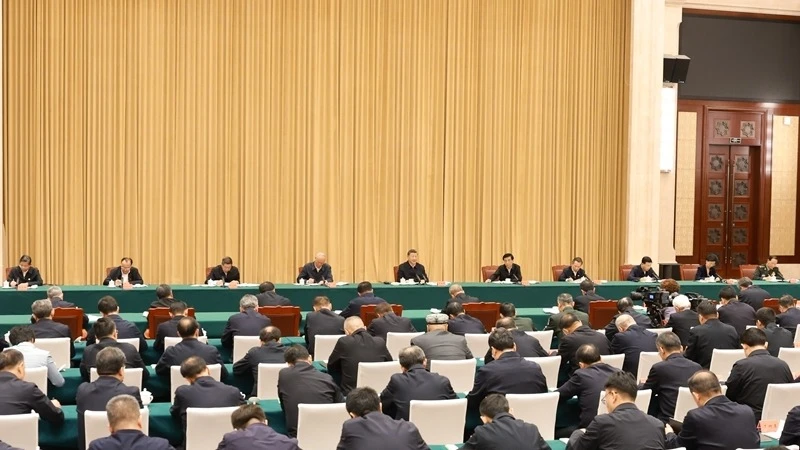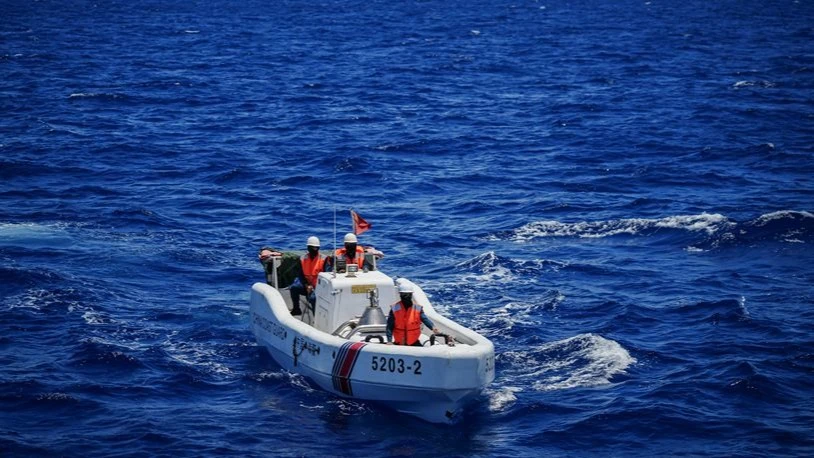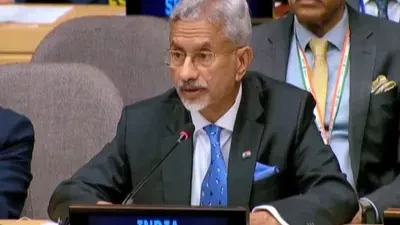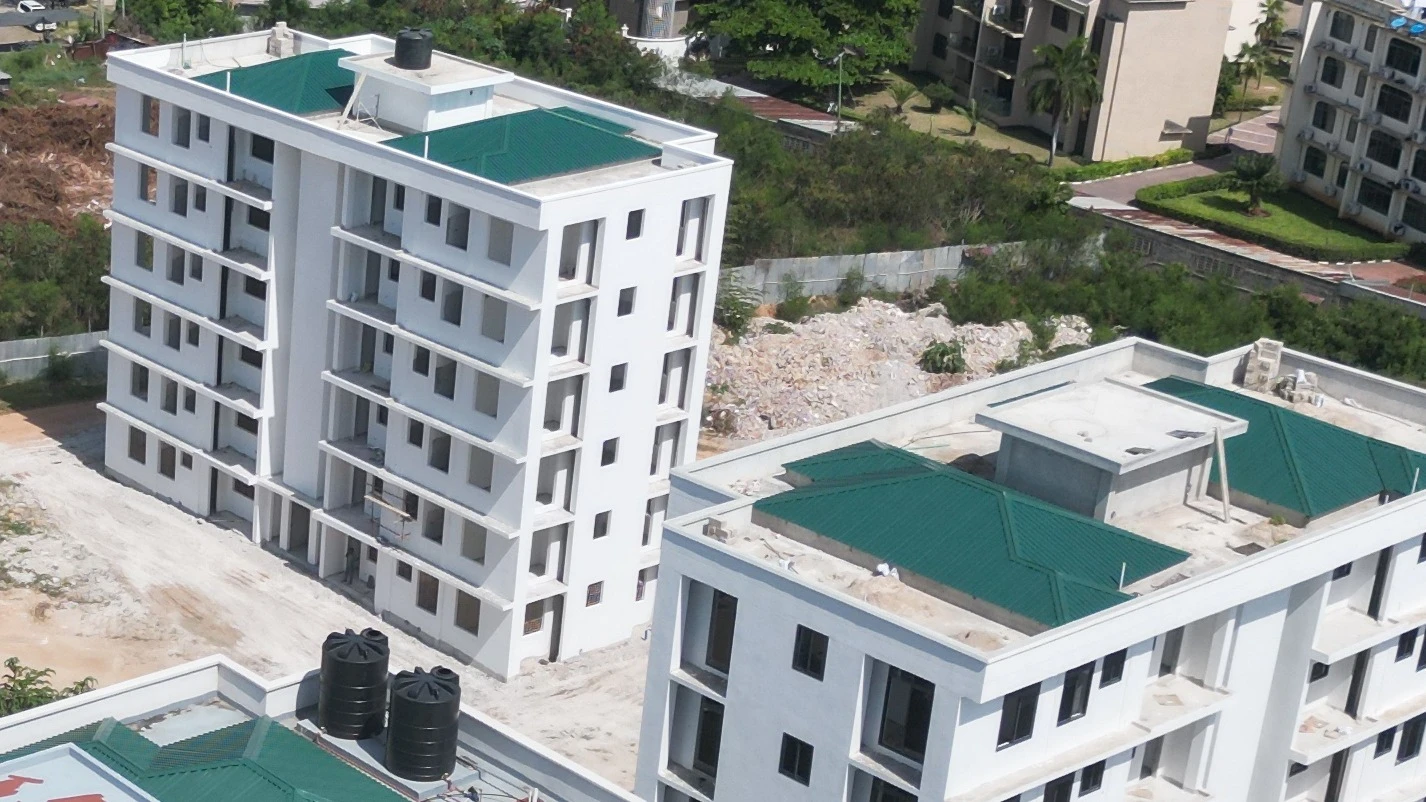Global state of democracy report 2025 unveils ‘radical uncertainty’

A new global democracy report on 178 surveyed countries across the world released recently by International Institute for Democracy and Electoral Assistance (International IDEA) shows democracy across the world continues to deteriorate.
Titled “The Global State of Democracy 2025: Democracy on the Move”, the report says in 2024, 94 countries—representing 54 per cent of all countries assessed—suffered a decline in at least one factor of democratic performance compared to their own performance five years earlier. “In contrast, only 55 countries (32 per cent) advanced in at least one factor over that period,” the report says.
Surveyed countries were assessed in four categories of democratic performance, namely 1) representation, 2) rights, 3) rule of law, and 4) participation. In the category of representation - each surveyed country was assessed in free political parties, local democracy, inclusive suffrage, effective parliament, credible elections and elected government. In the category of rights - each country was assessed in civil liberties, access to justice, basic welfare and political equality.
Other indicators assessed in the category of rights are freedom of expression, freedom of movement, freedom of association and assembly, freedom of religion, freedom of the press, gender equality, economic equality and social group equality. In the category of rule of law - each country was assessed in judicial independence, predictable enforcement, absence of corruption and personal integrity and security. In the category of participation - each country was assessed in electoral participation, civic engagement and civil society.
In all four categories of democratic performance, Tanzania ranks as follows in descending order: rule of law (53rd), rights (83rd), participation (100th) and representation (103rd) out of 178 surveyed countries. Scores were based on a scale of 0.0-1.0, 0.0 indicating the lowest, and 1.0 indicating the highest score.
In the rule of law category, Tanzania scores between 0.5 and 0.6 points in all of the following indicators: judicial independence, predictable enforcement, absence of corruption and personal integrity and security – all of which make Tanzania a good performer.
In the representation category, Tanzania has performed highly (above 0.8 point) in inclusive suffrage, followed by effective parliament in which Tanzania scores above 0.6 point.
In East Africa, Tanzania leads other East African Community (EAC) member states in the three categories of rule of law, rights, representation, but ranks second after Kenya in the participation category.
According to The Global State of Democracy 2025: Democracy on the Move Report, scores for personal integrity and security are improving in 10 countries across all levels of performance, namely Bangladesh, Burundi, Chile, Egypt, The Gambia, Iraq, Montenegro, Singapore, Syria and Tanzania.
The report suggests that the world passes through radical uncertainty times as far as democracy is concerned. “For actors genuinely concerned about democratic principles, recent developments have raised serious concerns about the state of global democracy. The USA—a country long regarded as a leading advocate of democracy worldwide—has, in 2025, significantly reduced both its diplomatic engagement and its financial support for international democracy assistance. These developments have contributed to a weakening of international democratization efforts,” the report says.
It adds that in less than six months, US domestic political institutions have also lost much of their symbolic sheen, increasingly serving as a reference point for executive overreach and offering more encouragement to populist strongman leaders than to pro-democracy hopefuls.
According to the report, between January and April 2025, International IDEA issued 20 alerts (twice as many as in any of the previous two full years), documenting instances in which the US government has eroded and abolished the rules, institutions and norms that have shaped US democracy. Giving examples it says efforts to restrict academic freedom, criminalise protest activity, question the legitimacy of certified elections, selectively restrict media access to the executive and circumvent due process norms. “Some observers have described these developments as a ‘presidential coup’ in the USA, warning that the country lies at the ‘cusp of autocracy’,” it points out.
This report corroborates another report titled “The Global State of Democracy 2024: Strengthening the Legitimacy of Elections in a Time of Radical Uncertainty” published by International IDEA, which analyses democratisation in 173 countries across the world. According to the latter report, in 2023 only 42 countries (of the 173 our data cover) demonstrated a net positive change compared to 79 countries that suffered more declines than advances (net negative change). That is, about one in four countries was making progress, while four out of every nine were worse off.
People Power Under Attack 2024 Report, which was published by CIVICUS Monitor based in Johannesburg, South Africa, too shows only 40 out of 198 countries and territories had an open civic space rating, indicating widespread respect for civic freedoms, while 81 countries and territories were rated in the worst two categories of having repressed and closed civic space, indicating widespread and routine repression of fundamental freedoms. The report says 72.4 per cent of the global population lived under repressive conditions, about 30 per cent in countries where civic space is completely closed.
Thus, there is global regression in democracy as the majority of countries tend to lean towards autocracy. This is a worrying global phenomenon. With regard to Africa, “The Global State of Democracy 2025: Democracy on the Move” report says African countries account for the largest share of global declines, with 33 per cent, followed by Europe, with 25 per cent. “Asia and the Pacific and the Americas accounted for a smaller share of overall deterioration (20 per cent and 16 per cent, respectively), with West Asia, already the lowest-performing region globally, comprising the smallest portion (6 per cent).”
International IDEA is an intergovernmental organisation with 35 member states founded in 1995 to support sustainable democracy worldwide. It is based in Stockholm, Sweden, and has regional and country offices in Africa, Asia and the Pacific, Europe, and Latin America and the Caribbean. It is a Permanent Observer to the United Nations and is accredited to European Union institutions.
Top Headlines
© 2025 IPPMEDIA.COM. ALL RIGHTS RESERVED

























